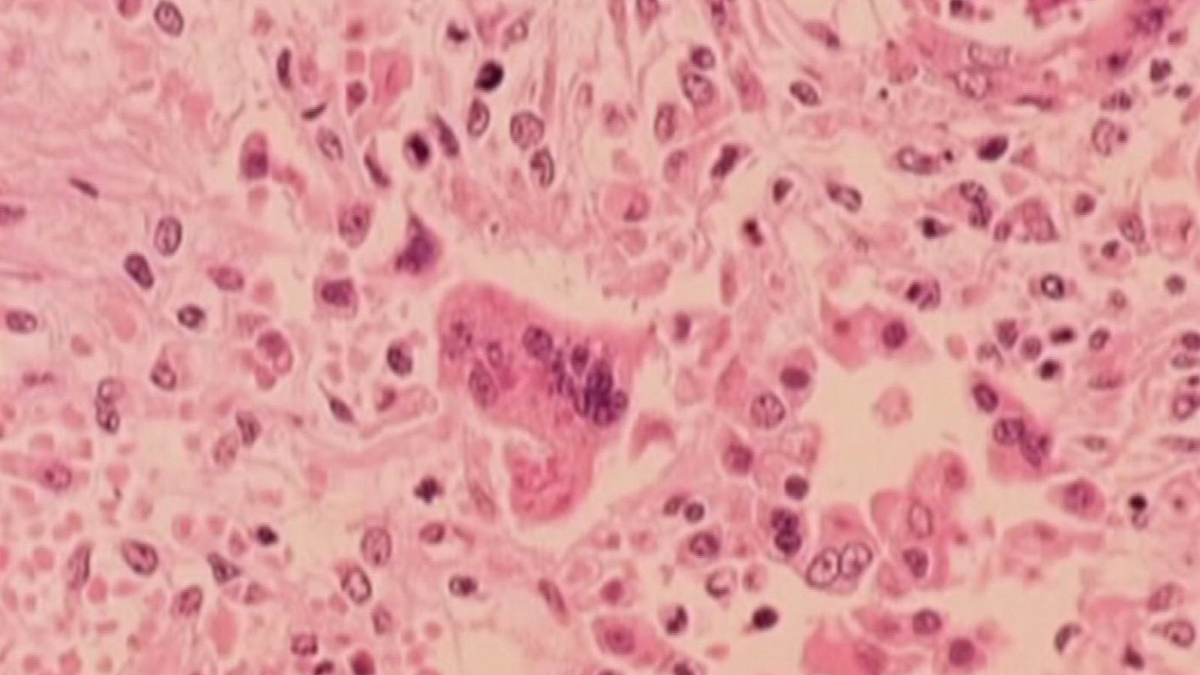Which medicines can you take for COVID and what are the side effects?
Health experts broke down the latest developments amid several high-profile cases.
Here's what you need to know about the coronavirus pandemic across Illinois today:
COVID Rebound FAQ's: What We Know About the Causes, How Frequently it Occurs and More
Feeling out of the loop? We'll catch you up on the Chicago news you need to know. Sign up for the weekly Chicago Catch-Up newsletter here.
After several high-profile cases of "COVID rebound" in recent weeks, many Americans are curious about just how frequent the ailment is in patients who test positive for the virus.
While not common, a return of COVID symptoms after initial improvement could occur in nearly 30% of cases, and in some instances, a positive test result can occur even after several negative tests, as it did for President Joe Biden in recent weeks.
Here is what we know about the phenomenon.
Local
When Are You Most Contagious With COVID? Here's a Timeline
As COVID-19 cases continue to climb and new subvariants emerge, some may be wondering how long the virus can linger.
Under revised guidance from the Centers of Disease Control and Prevention, people who contract COVID-19 are advised to isolate for at least five days. After you have ended isolation, you'll also need to wear a mask through day 10, per the guidelines. When the isolation period is over, you should still avoid being around people who are most at-risk until at least day 11.
Read more here.
FDA Authorizes Emergency Use for Novavax Covid-19 Vaccine for Ages 12 to 17
Biotechnology company Novavax announced on Friday that its Covid-19 vaccine has been authorized for emergency use by the U.S Food and Drug Administration for adolescents between the ages of 12 and 17.
In July, Novavax's two-dose Covid-19 vaccine for adults ages 18 and over got its emergency approval from the FDA.
Read more here.
What Medicine Can You Take for COVID? Paxlovid, Remdesivir and Other Treatment Options
The majority of people who contract COVID-19 don't need to seek treatment and can typically battle the infection on their own. That's not always the case, however, especially for those who are high risk and have certain health conditions.
In an effort to prevent hospitalization and severe illness, multiple options are available, including antiviral pills and intravenous treatments. The criteria vary widely for each, and depending on your situation, one option may be recommended over the other.
Those seeking treatment are advised by the Centers for Disease Control and Prevention to reach out to their health care provider, even if only experiencing minor symptoms.
As the BA.5 subvariant continues to circulate and more cases occur, here's what to know about the treatment options, including eligibility and possible side effects.
What is BA.4.6? Expert Explains New COVID Variant Now Being Tracked by CDC
A new COVID variant is slowly beginning to grow in numbers in the U.S. and in the Midwest, but how concerning is it and will it overtake the BA.5 variant currently dominating cases?
According health experts, much is still unclear about BA.4.6, a descendent of the BA.4 variant that first emerged in April and May. The new strain is now responsible for just over 5% of cases across the country, according to Centers for Disease Control and Prevention estimates, marking a slight increase from numbers reported one week earlier.
Read more here.
Current COVID Symptoms: Common Symptoms Now Compared to Earlier in Pandemic
As omicron subvariants continue to make up roughly all COVID cases in the U.S., and as new variants continue to emerge, are symptoms shifting?
According to the latest update from the CDC, the BA.5 lineage of the omicron variant is now the most prevalent strain of the virus in the U.S., accounting for more than 88% of recent cases.
Read more here.
Do You Still Need to Quarantine After COVID Exposure? Here's What New CDC Guidelines Say
Do you still need to quarantine if you were exposed to COVID?
The guidelines have changed, according to the Centers for Disease Control and Prevention.
The CDC changed its recommendations last week, releasing new guidance for people who were potentially exposed.
Read more here.
Omicron-Specific Booster Expected to Be Available in ‘a Few' Weeks, COVID Czar Says
White House COVID coordinator Dr. Ashish Jha said on Wednesday that the newly updated COVID-19 boosters will be available to teens and adults "in a few short weeks."
"I believe it’s going to be available and every American over the age of 12 will be eligible for it," Jha told NBC News' Lester Holt.
Read more here.
CDC Director Walensky to Reorganize Agency After Admitting COVID Pandemic Response Fell Short
CDC Director Rochelle Walensky is reorganizing the agency, saying it didn't react quickly enough during the Covid pandemic, according an internal review of the agency's operations released on Wednesday.
Walensky laid out several organizational changes the Centers for Disease Control and Prevention will take over the coming months to correct missteps and failures that occurred during the last 2.5 years of the pandemic, according to a fact sheet.
Read more here.
The Latest CDC COVID Guidelines: Here's What Steps to Take if You Test Positive
New guidelines surrounding COVID protocols have been put into place, with the changes being driven by a recognition that an estimated 95% of Americans 16 and older have acquired some level of immunity, according to federal health officials.
The revised recommendations, announced Thursday by the Centers for Disease Control and Prevention, ease social distancing requirements and no longer encourage Americans to quarantine if they come into close contact with an infected person.
Read more here.
Is Nausea a Sign of COVID-19? What to Know About Digestive Symptoms and the Virus
People who come down with COVID-19 can experience a wide range of symptoms, with fever, tiredness and cough said to be some of the most common. However, digestive symptoms like nausea, vomiting and diarrhea, as well as others, are reported less frequently, according to the Mayo Clinic.
A study titled "The Roles of Nausea and Vomiting in COVID-19," published in 2021, found both nausea and vomiting aren't uncommon symptoms for children and adults with COVID. Often times, they can appear before other types of symptoms.
Read more here.
Should You Test Before Leaving COVID Isolation? Here's What the CDC, Chicago's Top Doctor Say
The Centers for Disease Control and Prevention released a new set of COVID guidelines Thursday, clarifying whether recovering individuals need to test out of isolation.
In its updated guidelines, the CDC recommended different approaches for patients based on their symptoms.
Read more here.
Exposed to COVID? FDA Recommends Taking as Many as 3 Rapid At-Home Tests, Even if You Aren't Showing Symptoms
Under revised guidance from the Food and Drug Administration, individuals who have been exposed to COVID-19 may need to take as many as three at-home tests to ensure that they are not experiencing asymptomatic infections.
The new guidance was issued last week after the Centers for Disease Control and Prevention changed its own recommendations for those exposed to COVID, saying that quarantine is no longer recommended for those exposed to the virus and who are not showing symptoms.
Read more here.



